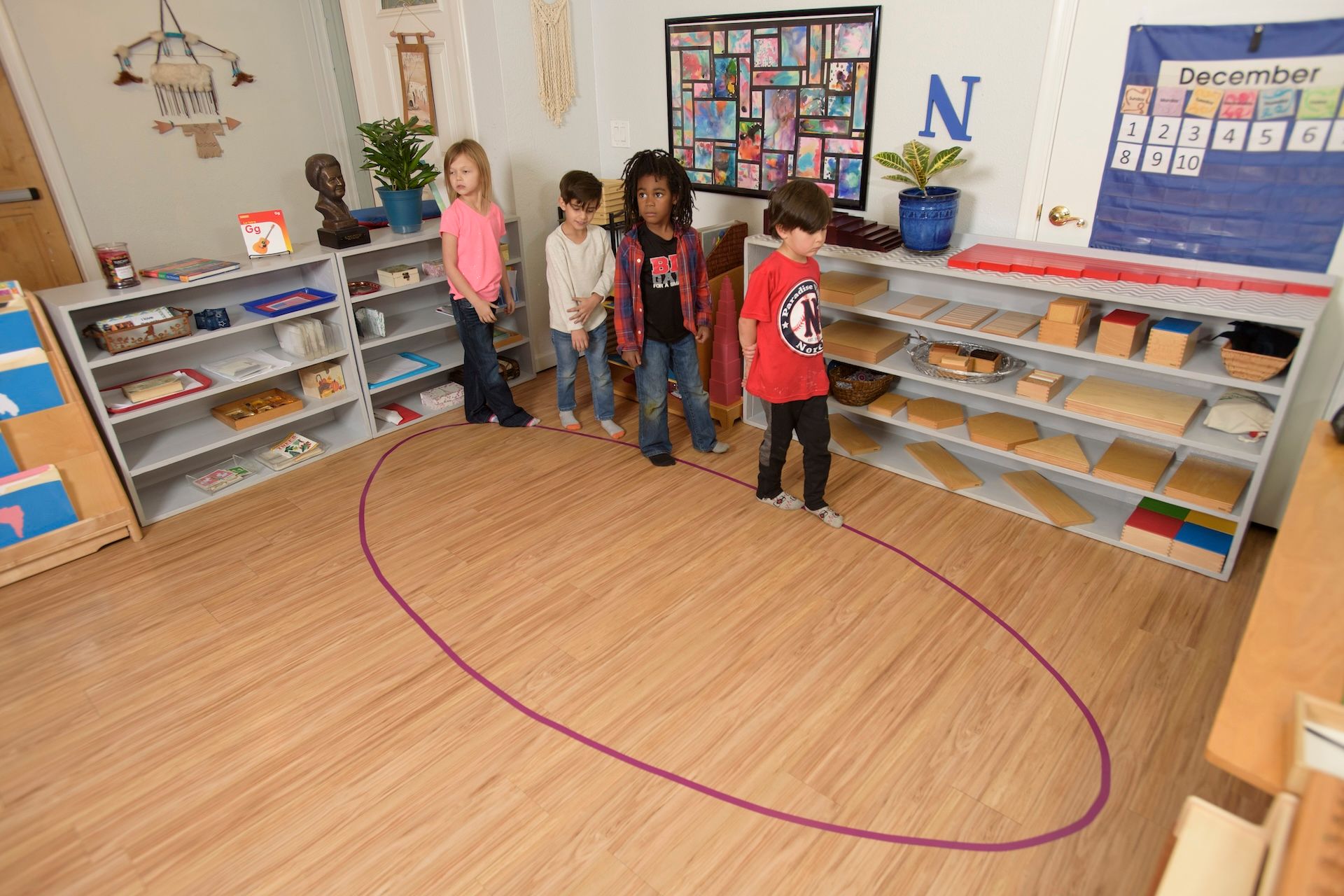Montessori classrooms are run very differently from traditional classrooms, from the way the children are expected to behave to the way new material is presented. It can be daunting for a parent to try and reinforce the lessons from school when they’re unfamiliar with the presentation. Although a class visit can be very helpful, not everyone has the ability to come in and watch how schooling is done.

Fortunately, you don’t have to be an expert in Montessori to imitate and enhance the lessons your children are learning. Recently, we talked about helping grow your child’s independence. Today, we’re going to examine how you can support language learning in your home.
Conversing
Simplicity is part of the essence of Montessori. Less complicated approaches can be better than people often give them credit for. Talk to your kids about anything and everything. Point things out when you go shopping or head to the park. Ask them about their feelings and opinions. Try to introduce them to new words without overwhelming. Spending time talking to your child won’t just reinforce their language development–it will also help you better understand the layers of childhood thought.
Reading
Loving learning for life usually starts with a love of books. Reading to your children is critical for them to understand words in their context more. Establish a story time routine at least a few days a week to spend time sharing words with your kids. You don’t have to stop with books, though. Show them how to read instructions before they start working on a project or cooking food. Promoting literacy throughout life helps children understand words in context and makes them more independent.
Joking
Everyone loves a good joke. A lot of parents fondly remember the first time their child told them a joke. Laughing is more than just a great bonding experience—it’s a chance to use language in an interesting way. People learn more effectively when they have a positive teaching experience. Have fun talking to your kids. Don’t shy away from strange, imaginative ideas they may have. You can make them giggle and teach them new ways to appreciate words. Take them down the different roads of humor.
Poetry
The flow of language is a beautiful part of artistic expression. The elements of poetry incorporate rhythm, style, and verse. Memorizing poems to recite to your children is a great way to involve them in this under-appreciated literary genre. Older poems tend to use words in ways that children may not be familiar with and expand their horizons. You can look up poems from other cultures and share them with your children while adding in your own favorites. Take the opportunity to play with words when you can.
Acquiring language is distinctly human. Although it seems to come naturally, there’s a wide range of possible outcomes for children. How much they are exposed to and how often they interact with people plays a huge role in how they ultimately develop. The Montessori classroom focuses on engaging students with each other as well as their instructors. Don’t shy away from larger words or more complex topics, as appropriate with older children. Adding a few more opportunities for talking and reading will help your child’s language skills really flourish.
The post Enhancing Montessori Education with Language appeared first on Pebblecreek Montessori.
Hours
MONDAY - FRIDAY
HALF DAY: 8:30a – 12 noon
ACADEMIC DAY: 8:30a – 3:30p
EARLY CARE: 7:00a – 8:30a
AFTER CARE: 3:30p – 6:00p
OFFICE: 8:00a - 4:00p
Programs
Connect
Pebblecreek Montessori




